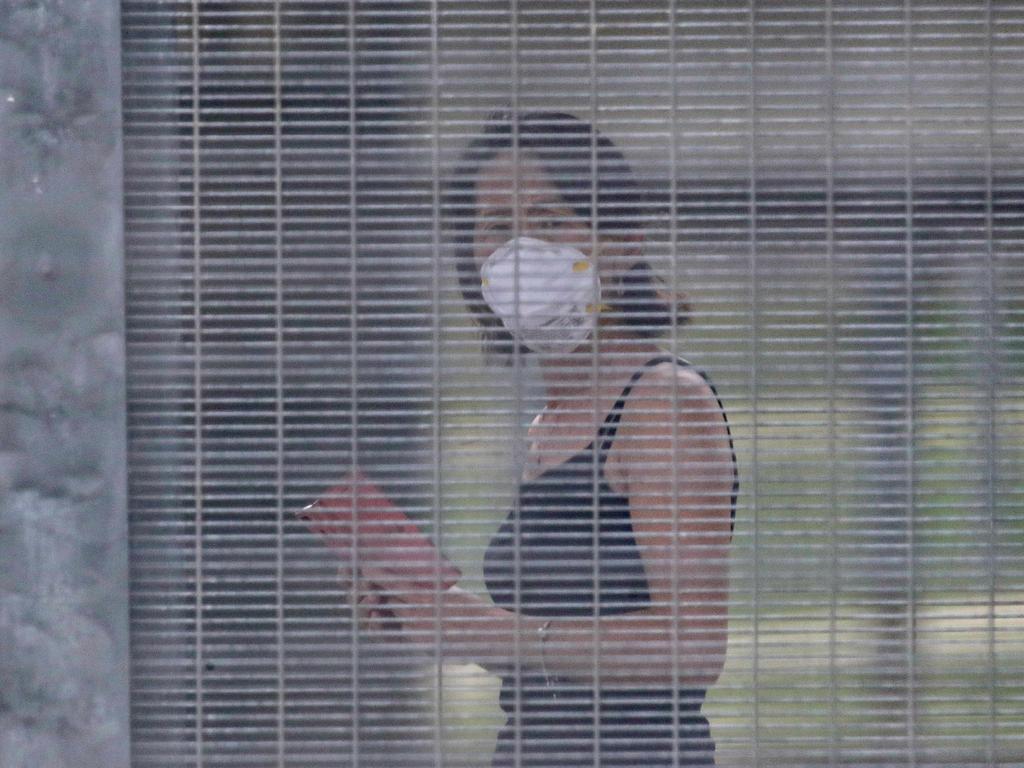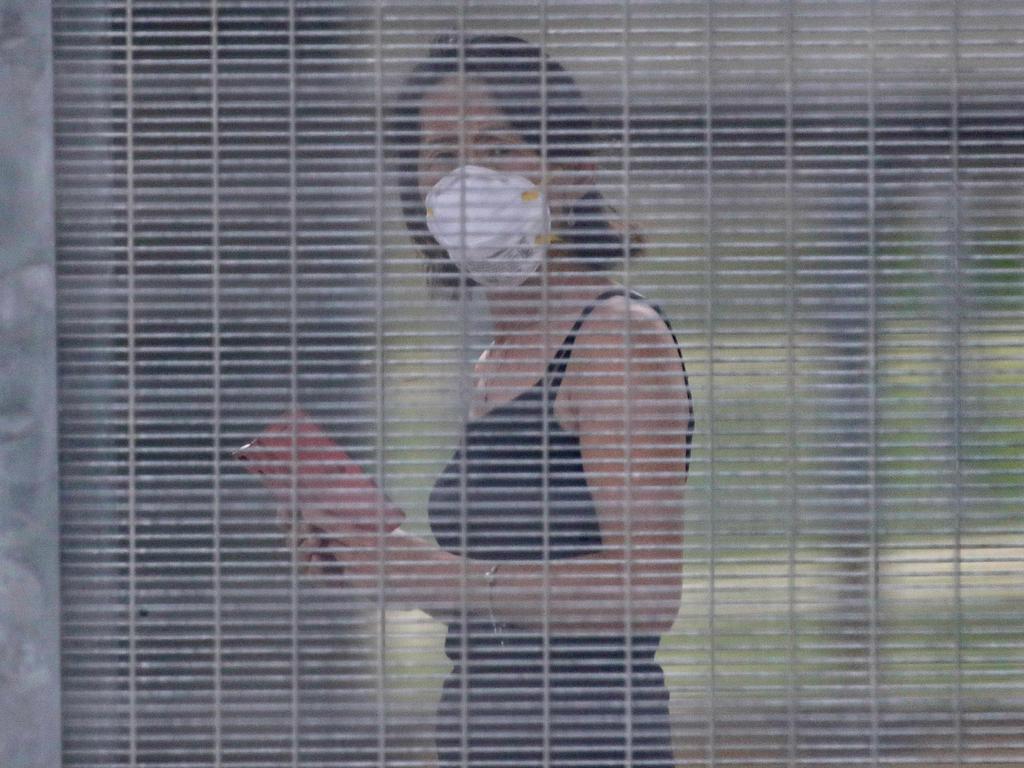Coronavirus: Travel ban risks exodus of Chinese students
A third of new Chinese students may abandon Australia for foreign unis as China expresses ‘regret’ at the ban.
Australia is in danger of losing a third of new Chinese students to foreign universities as tensions over the Morrison government’s extension of the coronavirus travel ban into a third week prompted the Chinese embassy to express “deep regret and dissatisfaction”.
The Prime Minister will review the ban weekly until the deadly disease is brought under control, despite mounting concerns from business groups and moves by Chinese airlines to push cancellations of flights to Australia until mid-June.
The travel ban extension came as the death toll in China’s Hubei province leapt by a record 242 fatalities to 1369, and cases of the disease increased to more than 60,000.
The Chinese embassy in Canberra last night expressed “deep regret and dissatisfaction” over the extension of the travel ban, saying China had taken “the most comprehensive and rigorous prevention and control measures” against the disease. “Only Australia and a small number of countries have taken such extreme measures, which are overreaction indeed,” the embassy said.
A major survey of Chinese students stranded in China by the travel ban has found nearly a third of them (32 per cent) would enrol in another country if they were prevented from studying in Australia in the first semester of this year.
The survey of more than 16,000 students, conducted by the Education Consultants Association of Australia, confirms universities’ fears that they risk losing the loyalty of Chinese students.
Group of Eight universities chief executive Vicki Thomson, told The Australian the ECAA survey was a “canary in the coalmine” warning. “While we have this uncertainty, we have this risk of losing students,” she said. “It’s a lost opportunity for the students, a loss for the universities, and a loss to the economy.”
Mr Morrison said on Thursday night he was “very mindful” of the economic impacts of his decision to extend the ban, but he had to act on the “best medical advice”.
“Our first responsibility, my first responsibility, is the health and wellbeing of the Australian people,” he said.
Economists have warned that the impact of the virus, combined with the bushfire crisis, is likely to risk tipping Australia into negative GDP growth for the first three months of this year.
Tourism continues to suffer, with analysis by former Tourism Australia executive Andy Jiang showing it was unlikely that most of the flights between Australia and China that were cancelled because of the virus would be restored within six months of the travel ban being lifted. The cancellations have reduced the number of services from China to Australia from 164 a week to just 20, with many of those believed to be arriving less than half-full.
About 100,000 Chinese students who are expected to study in Australian universities this year are stranded in China. If all of them have to postpone their study in the first semester, universities face losing up to $2bn.
Canada and Britain — major competitors to Australia for Chinese students — have no entry ban to travellers from China, including students, but travellers from Hubei province to those countries are asked to self-quarantine for 14 days.
Mr Morrison has left the door open to extra assistance for universities and other sectors of the economy that are struggling under the travel ban.
“We’re working very closely together with the university sector … it is still some four to six weeks before you’re reaching a period of time where that can really start to impact on the year,” Mr Morrison said.
“They’ve put in place a number of measures with online learning and these types of things which can address that for now … (financial assistance packages) are not measures currently before us, and they are not measures currently being sought.
“When I say that we’re looking at ways to mitigate these on the ground, we’re open to all the options that are there to do that effectively and do that responsibly.”
Higher education groups are growing more anxious about the effects of the coronavirus on Australia’s campuses.
Ms Thomson said the coronavirus was shaping as far worse for universities than the last epidemic that affected travel from Asia, the SARS virus in 2002.
At that time, there were nearly 10 times fewer Chinese students enrolled in Australian universities than there are now. “This will test our resilience in a way it’s never been tested before,” she said.
The Group of Eight said it would “continue to work with our government and the Chinese embassy, our affected students and their families, on strategies to ensure that there are a range of temporary study options available so the disruption is as minimal as we can possibly make it”.
International Education Association of Australia president Phil Honeywood said the travel ban extension could lead to universities starting the academic year later than anticipated.
“Clearly an extension of the travel ban will raise challenges around course commencement and the reconfiguration of timetables,” Mr Honeywood said.
“If any good has come out of this, the past two weeks have provided a great example of collaboration between often competing education providers, levels of government and other stakeholders.”
Mr Honeywood said the universities had “been able to achieve flexibility on online learning and regulation requirements”.
Business groups have warned that an extension of the travel ban could compound the damage already done to retailers and tourism. Major banks this week predicted Australia could see its first quarter of negative economic growth since 2011 as a result of the coronavirus crisis.
Australian Chamber of Tourism chairman John Hart, who said the Chinese tourism market had come to a “dead stop”, wants amendments to the ban.
“We’re urging that there are some ports reopened rather than a blanket ban,” Mr Hart said.
Australian Industry Group chief executive Innes Willox said an extension to the travel ban would cause more complications.
“It will compound the direct and downstream impacts of the bushfires and current travel ban on tourism, businesses and their suppliers,” he said. “The impact has been broader than … tourism businesses. It has impacted retailers, hospitality, suppliers and transport operators.”
International Chamber of Commerce Australia director Bryan Clark urged the government to amend the ban in coming weeks rather than extend it.







To join the conversation, please log in. Don't have an account? Register
Join the conversation, you are commenting as Logout